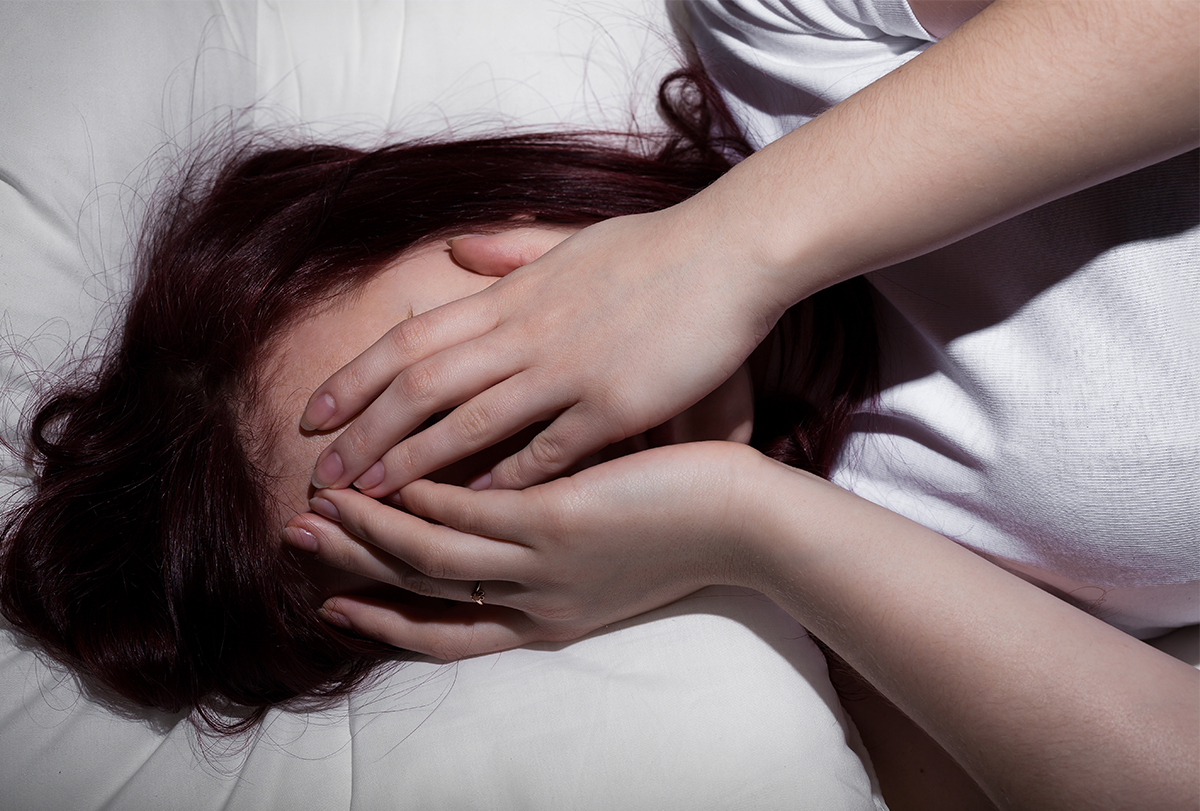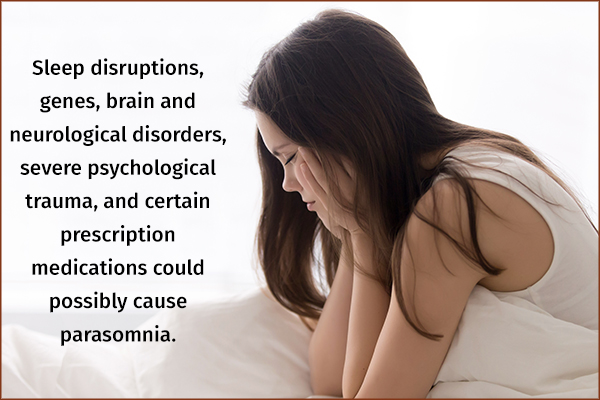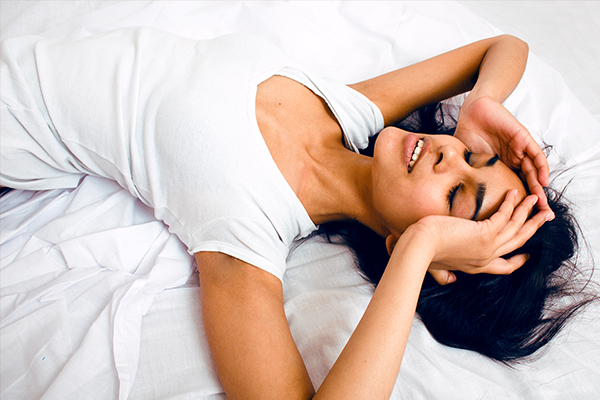In this article:
Parasomnia refers to motor and/or sensory events that occur while sleeping, usually during transitions from one state to another. Often, these events are uncomfortable and distressing to both the patient and bed partner.

The lifetime prevalence for some parasomnias is quite high (e.g., sleepwalking, sleep talking, and nightmares), whereas other parasomnias are far less common (e.g., sleep-related eating disorders, sleep sex, violent dream enactment, and sleep seizures).
Most parasomnias are also dependent on the sleep stage they occur in. Certain disorders occur in the rapid eye movement (REM) stage of sleep, whereas others are particular afflictions of the non-rapid eye movement (NREM) stage of sleep. (1)
NREM disorders are typically sudden with incomplete arousal from slow-wave sleep. They typically occur during the first third of the night as this is when slow-wave sleep is more prominent.
It is important to note that parasomnias demonstrate more purposeful actions with behaviors that are goal directed.
Different Types of Parasomnia
There are many different presentations of parasomnias. Some of them include:
- Sleepwalking
- Confusional arousals
- Night terrors
- Periodic limb movements during sleeping
- Bruxism
- Nightmares
- Sleep paralysis
- Narcolepsy
- Sleep enuresis
- Sleep talking
Other Disorders Associated With Parasomnia
Other disorders associated with parasomnia are as follows:
- Substance abuse
- Anxiety
- Depression
- Post-traumatic stress disorder (PTSD)
- Irregular sleep schedules such as shift work
- Insomnia
- Parkinson’s disease
Causes of Parasomnia

The exact cause of parasomnia is not clearly understood, but it has been associated with the following:
- Sleep disruptions
- Genes
- Brain and neurological disorders
- Severe psychological trauma
- Certain prescription medications
Parasomnia can occur as a side effect of the following sedating drugs:
- Benzodiazepine receptor agonists (2)
- Antidepressants (amitriptyline, paroxetine, mirtazapine, bupropion) (2)
- Antipsychotics (olanzapine, quetiapine) (2)
- Antihypertensives (propranolol, metoprolol) (2)
- Fluoroquinolones
- Montelukast
- Topiramate
- Hypnotic medications
- Selective serotonin reuptake inhibitors (SSRIs)
Some conditions such as sleep talking with sleepwalking and sleep talking with bruxism have demonstrated some genetic components. (3) Restless legs syndrome, nocturnal enuresis, and narcolepsy also seem to have a genetic contribution, but most of the conditions are spontaneous.
Symptoms of Parasomnia
Different types of parasomnia exhibit different symptoms, which can range from talking in one’s sleep to highly distressing night terrors with the inability to be consoled.
The symptoms or actions may have a personal meaning to the individual patient, but these behaviors are not under conscious control. Many of the behaviors observed in parasomnia episodes are appetite related (e.g., sex, eating, chewing, breathing) or overlearned (e.g., walking, driving, cooking).
There is unresponsiveness to the external environment, mental confusion, sometimes repetitive behaviors, inability to remember the event, and difficulty in waking the patient during the parasomnia.
Difference Between Parasomnia and Dyssomnia
Dyssomnia involves difficulty falling asleep or staying asleep, whereas parasomnias occur during sleep.
Lifestyle Changes and Self-Care Measures for Parasomnia
Here are some home interventions that need to be implemented when suffering from parasomnia:
- Oftentimes, environments will have to be altered to maintain safety. For instance, sharp objects and possible weapons may need to be removed, particularly for those suffering from confusional arousals and night terrors. (4)
- Sometimes, rooms are kept locked to prevent patients from exiting the home in the middle of the night.
- The bed partner or roommates must be informed of your condition.
- For sleep-related eating disorders, cabinets may need to be locked.
- Unhealthy foods may need to be avoided altogether or at least stored away in places unable to be reached.
Most-Asked Questions About Parasomnia

Is narcolepsy a type of parasomnia?
Narcolepsy is not a true sleep parasomnia but is clearly a disorder of arousal. Narcolepsy episodes have been congenially described as “sleep attacks.” They involve brief, unwanted episodes of sleep.
Characteristics of narcolepsy include excessive daytime sleepiness, hallucinations when falling asleep, sleep paralysis, and/or cataplexy. (5)
Cataplexy is a loss of muscle tone that is precipitated by an intense emotional stimulus such as crying or even laughter. Patients are typically aware during the cataplectic episodes. Loss of muscle tone in certain areas is common (e.g., buckling of the knees, slacking of the jaw, upper limb weakness).
Is parasomnia a mental illness?
No, parasomnia is not a psychiatric condition, but more of a neurologic disorder that sometimes improves over time.
Is parasomnia curable?
There are treatments for many of the conditions of parasomnia, and some also improve or resolve spontaneously.
Final Word
The distinction between wake and sleep is not black and white, and there are important transition points. It is in these stages where there is a complex relationship between the brain and the body’s behavior.
The conditions described above can be debilitating and have a tremendous impact on a person’s life, thus making it essential for these patients to receive the support and treatment they need.
- Was this article helpful?
- YES, THANKS!NOT REALLY


